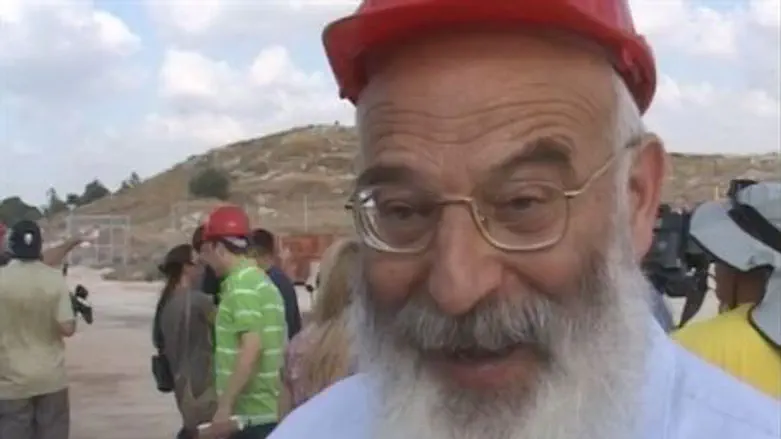
The heads of the Givot Olam company, whose Meged 5 well near Rosh Ha’Ayin has been said to contain an estimated 1.5 billion barrels of crude, held a news conference on Tuesday to mark the beginning of the drilling on the site.
The company’s chief geologist is Tuvia Luskin, an observant Jew who belongs to Chabad. As such, the work on the site was done so as to never break any of the laws of Shabbat.
The Torah forbids work to be done on Shabbat, and the Mishnah explained this prohibition by listing 39 types of activities that are not permitted on the Sabbath, such as planting, cooking and building.
Now, as the work has intensified, the Givot Olam team has managed to find a way to continue to drill and pump oil from Meged 5 even on Shabbat, all the while not breaking any Judaic laws.
This is accomplished by doing everything automatically using a Sabbath clock which allows the workers to produce oil without physically having to turn the faucets that carry the oil from various containers on and off, an act that would constitute work and thus break the laws of Shabbat.
In order to arrive at this solution, Givot Olam consulted with Machon Zomet (Zomet Institute), which specializes in making modern technology compatible with Jewish law.
“We’re seriously taking pride in the fact that we never drilled on Shabbat and we never did any melakhot [the Hebrew word for labor or work –ed.] on Shabbat,” exclaimed Luskin. “Now, for the first time last Shabbat we were producing on Shabbat without breaking Shabbat.”
“We wanted to illustrate how exactly [the drilling] works because there is a real facility over here,” said Maj. Gen. (res.) Giora Eiland, who serves as an external advisor for Givot Olam. “We took the opportunity to present some of the future steps as we’re planning for the next two years and for the years after that.”
Eiland emphasized that the entire Meged 5 project is made in Israel.
“The Israeli energetic independence does not relate only to gas,” he said. “Oil is important by itself because there is no full tradeoff between gas and oil, so it’s important to produce Israeli oil in order to supply it to aircraft, tanks, trucks and many other methods of transportation. The more successful we are, the better it is for the country.”
